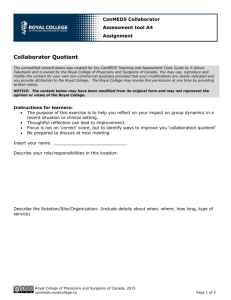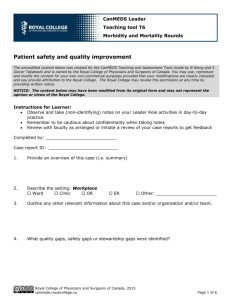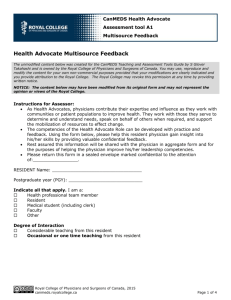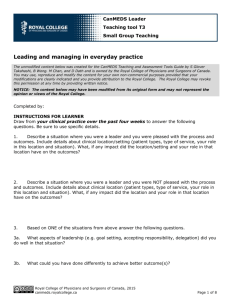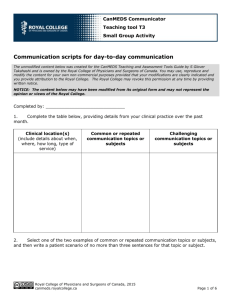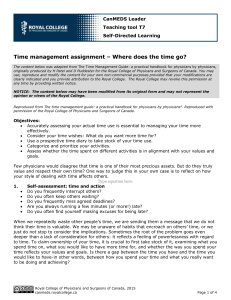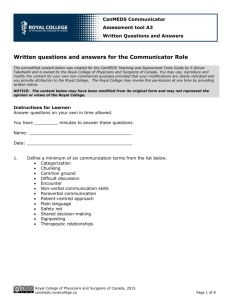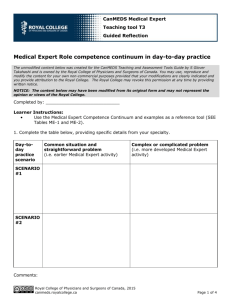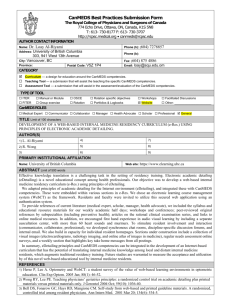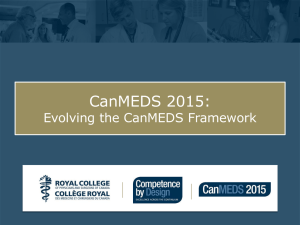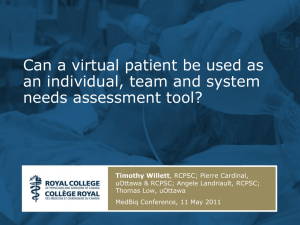MS Word
advertisement
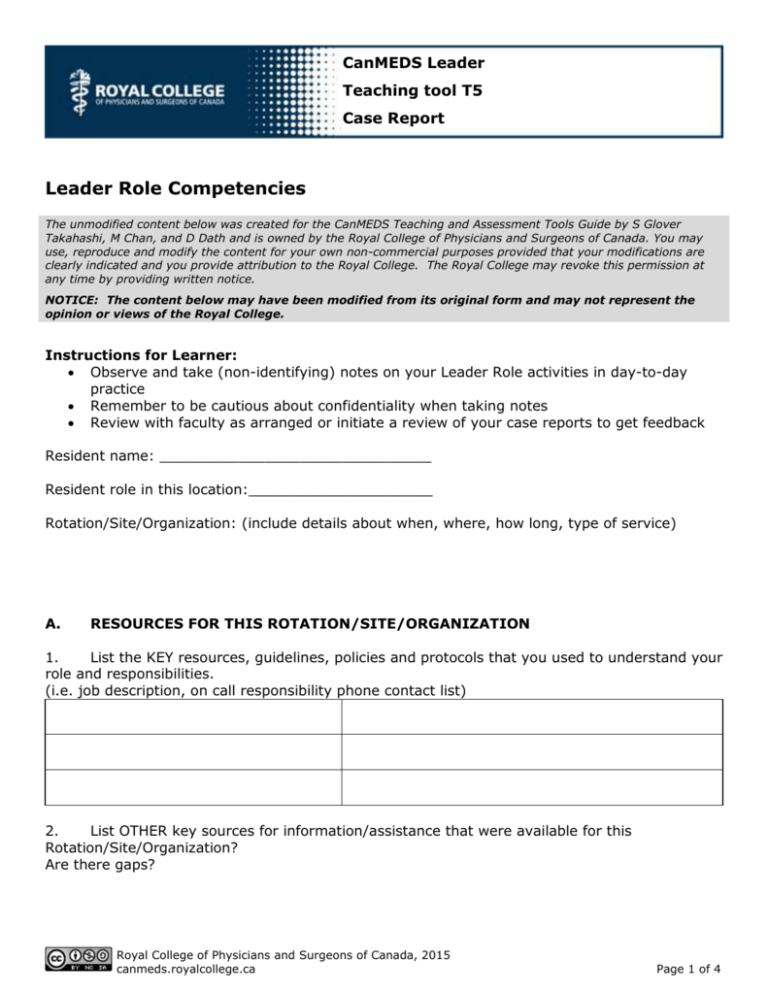
CanMEDS Leader Teaching tool T5 Case Report Leader Role Competencies The unmodified content below was created for the CanMEDS Teaching and Assessment Tools Guide by S Glover Takahashi, M Chan, and D Dath and is owned by the Royal College of Physicians and Surgeons of Canada. You may use, reproduce and modify the content for your own non-commercial purposes provided that your modifications are clearly indicated and you provide attribution to the Royal College. The Royal College may revoke this permission at any time by providing written notice. NOTICE: The content below may have been modified from its original form and may not represent the opinion or views of the Royal College. Instructions for Learner: Observe and take (non-identifying) notes on your Leader Role activities in day-to-day practice Remember to be cautious about confidentiality when taking notes Review with faculty as arranged or initiate a review of your case reports to get feedback Resident name: _______________________________ Resident role in this location:_____________________ Rotation/Site/Organization: (include details about when, where, how long, type of service) A. RESOURCES FOR THIS ROTATION/SITE/ORGANIZATION 1. List the KEY resources, guidelines, policies and protocols that you used to understand your role and responsibilities. (i.e. job description, on call responsibility phone contact list) 2. List OTHER key sources for information/assistance that were available for this Rotation/Site/Organization? Are there gaps? Royal College of Physicians and Surgeons of Canada, 2015 canmeds.royalcollege.ca Page 1 of 4 CanMEDS Teaching and Assessment Tools Guide Leader teaching tool T5 3. Rate your approach to those elements of leadership that apply in this case that you are reporting on (e.g. leadership process, management, stewardship, quality improvement, patient safety). Rate your approach by including your own viewpoint and remember to include the feedback of others to inform your ratings. List important areas or ideas for improvement that are priorities for you. A. Leadership process IN THIS CASEa Rate your approach IN THIS SITUATION. Explain rating 1 2 3 4 5 Very poor Poor Solid competent Very good Superb Areas or ideas for priority improvement? Not applicable Asks what needs to be done Asks what is right for the patient(s), problem, organization etc. Develops action plans Takes responsibility for decisions Takes responsibility for communications Focuses on opportunities rather than problems Leads productive meetings Thinks and says “we” rather than “I” Other notes/reflections: Royal College of Physicians and Surgeons of Canada, 2015 canmeds.royalcollege.ca Page 2 of 4 CanMEDS Teaching and Assessment Tools Guide B. Management process IN THIS CASEa Leader teaching tool T5 Rate your approach IN THIS SITUATION. Explain rating 1 2 3 4 5 Very poor Poor Solid competent Very good Superb Areas or ideas for priority improvement? Not applicable Ensures understanding of work and timelines Identifies the priority tasks and timelines Establishes steps and sequence to deliver outcomes on time Shares work through effective delegation Assigns people important activities Assigns tasks based on match/fit of competencies and strength Assigns tasks based on learning needs Monitors people’s progress Communicates and clarifies with people Coaches peoples’ progress and success Flexibly modifies plans with new, emerging situations Deploys people with new, emerging situations Integrates personal and professional priorities Royal College of Physicians and Surgeons of Canada, 2015 canmeds.royalcollege.ca Page 3 of 4 CanMEDS Teaching and Assessment Tools Guide Leader teaching tool T5 Uses tools and resources effectively to achieve outcomes Other notes/reflections: 4. Summarize your TOP two or three areas of strength 5. # Planning for improvement Summarize your TOP two or three areas that need priority improvement over the next four to eight weeks? How are you going to work on your priorities over the next four to eight weeks? How will you know that you have achieved the needed improvement in your priority areas? 1. 2. 3. a Drucker PF. What makes an effective executive? Harv Bus Rev. 2004;82(6):58-63-136. Royal College of Physicians and Surgeons of Canada, 2015 canmeds.royalcollege.ca Page 4 of 4
